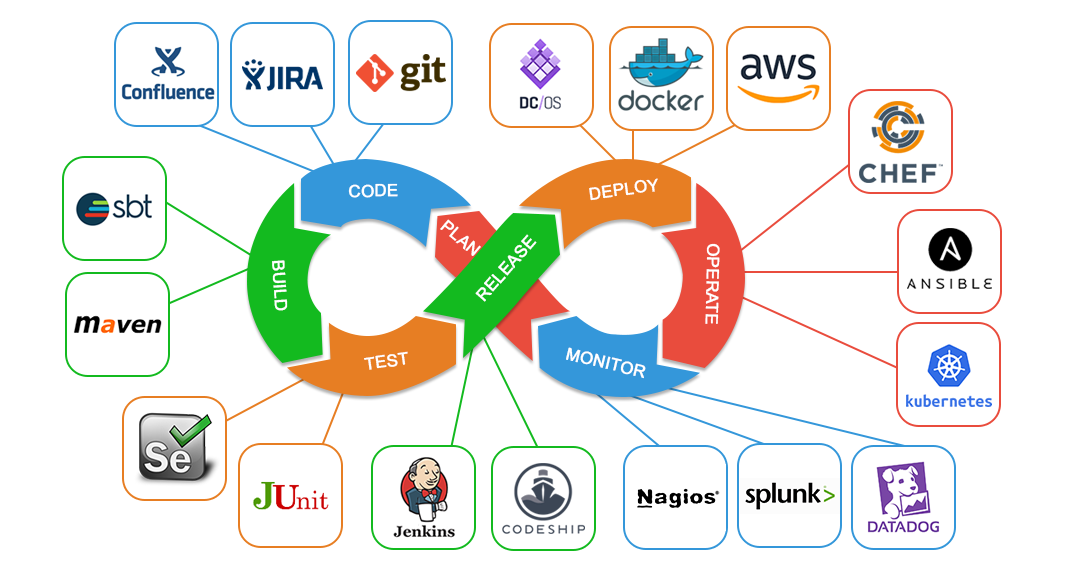#90DaysOfDevOps with the #TrainWithShubham Community
 Chetan Choudhary
Chetan ChoudharyTable of contents

DevOps is a set of practices and cultural philosophies that aims to combine software development (Dev) and IT operations (Ops) into a more collaborative and efficient process. The goal of DevOps is to streamline the software development lifecycle, from planning and coding to testing, deployment, and monitoring, in order to produce high-quality software more quickly and reliably.
DevOps emphasizes communication, collaboration, and automation between developers and operations teams, and seeks to break down traditional silos and barriers that can slow down the software development process. By adopting DevOps practices, organizations can improve their agility, scalability, and resilience, and respond more effectively to changing business needs and customer demands.
Why DevOps is Important?
DevOps is important for several reasons, including:
Faster delivery of software: DevOps enables teams to deliver software more quickly and reliably, thanks to the use of automation, continuous integration and delivery (CI/CD) pipelines, and other best practices. This helps organizations to respond more quickly to changing market conditions, customer needs, and business opportunities.
Improved collaboration and communication: DevOps emphasizes collaboration and communication between development and operations teams, breaking down traditional silos and promoting a culture of shared responsibility. This helps to foster a sense of teamwork and shared ownership, leading to higher-quality software and a more engaged workforce.
Higher-quality software: By adopting DevOps practices such as continuous testing and automated deployment, teams can ensure that their software is thoroughly tested and validated before it is released to production. This reduces the risk of bugs and other issues that can lead to downtime, lost revenue, and customer dissatisfaction.
Greater efficiency and cost savings: DevOps enables teams to automate many manual and repetitive tasks, reducing the risk of errors and freeing up team members to focus on higher-value work. This can lead to greater efficiency and productivity, as well as cost savings through reduced overhead and faster time-to-market.
Overall, DevOps is important because it enables organizations to build, test, and deploy software more quickly, reliably, and efficiently, while also fostering a culture of collaboration, continuous improvement, and innovation.
What is Automation, Scaling, Infrastructure?
Automation, Scaling, and Infrastructure are all important concepts in the world of DevOps and software development.
Automation refers to the use of technology to automate manual and repetitive tasks in the software development process, such as testing, deployment, and monitoring. By automating these tasks, teams can reduce the risk of errors, speed up the delivery of software, and improve the overall quality of the final product.
Scaling refers to the ability to expand or shrink the computing resources needed to support a software application in response to changing demand. For example, if an application experiences a sudden surge in traffic, it may require additional computing resources to continue operating smoothly. Scaling enables teams to adjust the capacity of their infrastructure to match the needs of the application, ensuring that it remains performant and available.
Infrastructure refers to the underlying hardware and software components that support an application, such as servers, networks, storage, and databases. In a DevOps context, infrastructure is typically managed through code, using tools like infrastructure-as-code (IaC), which enables teams to define and manage their infrastructure as a part of their software development process.
Together, automation, scaling, and infrastructure are key components of a successful DevOps strategy, enabling teams to build, test, and deploy software more quickly and reliably, while also ensuring that it remains performant, scalable, and available.
Subscribe to my newsletter
Read articles from Chetan Choudhary directly inside your inbox. Subscribe to the newsletter, and don't miss out.
Written by

Chetan Choudhary
Chetan Choudhary
My goal is to become proficient in DevOps tools and methodologies, such as continuous integration and deployment, containerization, infrastructure as code, and monitoring and logging. I believe that by mastering these skills, I can help teams deliver software more efficiently and with fewer errors, ultimately improving the user experience. If you are looking for a dedicated and enthusiastic DevOps learner to join your team, then look no further!